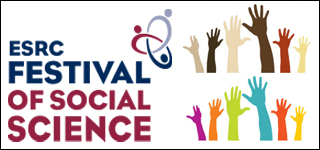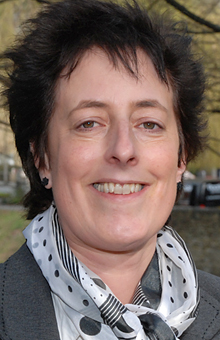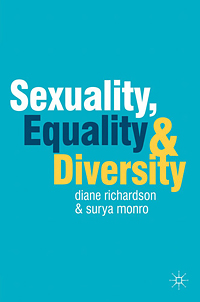Anti-LGBT discrimination lingers on
Thu, 01 Nov 2012 13:51:00 GMT
Researchers probe the impact of new laws designed to create a level workplace for lesbian, gay, bisexual and transgender people
DESPITE a raft of legislation aimed at creating equality at work for lesbian, gay, bisexual and transgender people, there is still widespread discrimination on grounds of sexual orientation, university researchers have found.
Examples range from reluctance by a council to acknowledge civil partnerships to complaints being made about a transgender person using a public swimming school. Also, genderless people who do not identify themselves as either male or female can be refused passports.
 The research was carried out at the universities of Huddersfield and Newcastle by Dr Surya Monro and Professor Diane Richardson. Their findings are the springboard for a workshop on lesbian, gay, bisexual and transgender (LGBT) equalities. It takes place in London on 6 November as part of the Economic and Social Research Council Festival of Social Science (http://research.ncl.ac.uk/selg/).
The research was carried out at the universities of Huddersfield and Newcastle by Dr Surya Monro and Professor Diane Richardson. Their findings are the springboard for a workshop on lesbian, gay, bisexual and transgender (LGBT) equalities. It takes place in London on 6 November as part of the Economic and Social Research Council Festival of Social Science (http://research.ncl.ac.uk/selg/).
Local authorities are supported by the law in developing equality policies specifically focussing on sexual orientation.
“But our research found many examples of subtle discrimination at work – such as silences, giggling or not recognising civil partnerships,” said Dr Munro.
“Some councillors and managers were reluctant to take initiatives forward,” she added. “ For example, in one council an officer was told not to develop a policy on sexual orientation, and reports came back from committees with red lines through the words ‘lesbian, gay and bisexual’.
“In another council, there was reluctance to include information about how to organise a civil partnership in the council booklet on marriages, births and death.”
Social stigma
 The needs of bisexual and transgender people are often overlooked, according to the research. Bisexuality is still largely hidden and carries social stigma. And there is still a lot of discrimination towards transgender people, according to Dr Monro [pictured].
The needs of bisexual and transgender people are often overlooked, according to the research. Bisexuality is still largely hidden and carries social stigma. And there is still a lot of discrimination towards transgender people, according to Dr Monro [pictured].
“For example, a transgender person using a public swimming pool was the object of complaints because she had visible scars.”
The research also looked at the difficulties of third gender, androgyne or ‘gender-queer’ people who may identify as being somewhere between male and female, or as entirely genderless. “Current legislation doesn’t cover these individuals who may be ridiculed. In some cases they can’t even get passports,” says Dr Monro.
However, the researchers found that following the new legislation, LGBT communities are now an aspect of staff equalities training in local government. And firm leadership made a big difference when it came to implementing equalities legislation.
In Northern Ireland, the endorsement by a local mayor was crucial in tackling hate crime. Elsewhere, the support of senior managers, who recognised the importance of inclusive policies, was invaluable.
The researchers also examined the impact of austerity measures.
“There are many LGBT people – for example young homeless people, or those with mental health issues, who because of the additional impact of homophobia, biphobia and transphobia maybe affected by the impact of austerity in profound and devastating ways,” says Surya Monro.
The 6 November event will provide a forum for stakeholders, community activists, and service users to discuss current developments in the LGBT equalities field. Speakers at the workshop will include Alice Ashworth (Stonewall), Petra Davis (Bi.UK), Louis Bailey (Transgender Resource and Empowerment Centre TREC), Professor Diane Richardson and Dr Surya Monro.

This release is based on Organisational Change, Resistance and Democracy: Lesbian, Gay, Bisexual and Transgender Equalities Initiatives in Local Government. It will include presentations by key community organisations and an introduction to a recently-published book Sexuality, Equality and Diversity, Palgrave MacMillan (2012) on the research by Professor Diane Richardson and Dr Surya Monro. The researchers carried out 37 interviews with people working in local authorities in Northern Ireland, Wales, the North East and South of England, 15 interviews with national/regional stakeholders and five with local councilors. They also ran ActionLearning Sets (ALS) in each of the four areas.







